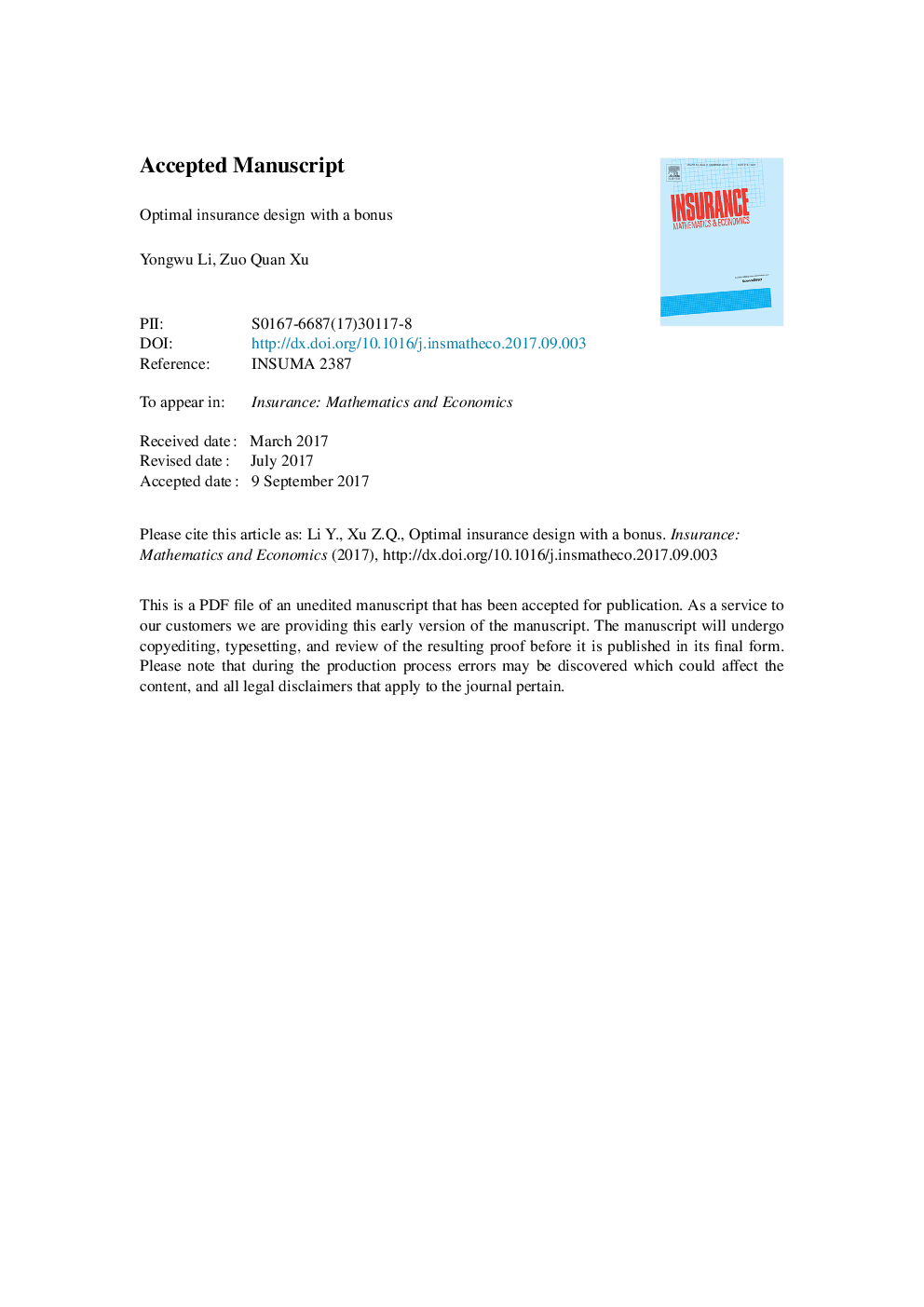ترجمه فارسی عنوان مقاله
طراحی بیمه بهینه با یک جایزه
عنوان انگلیسی
Optimal insurance design with a bonus
| کد مقاله | سال انتشار | تعداد صفحات مقاله انگلیسی |
|---|---|---|
| 112422 | 2017 | 24 صفحه PDF |
منبع

Publisher : Elsevier - Science Direct (الزویر - ساینس دایرکت)
Journal : Insurance: Mathematics and Economics, Volume 77, November 2017, Pages 111-118
ترجمه چکیده
این مقاله یک مشکل طراحی بیمه را مورد بررسی قرار می دهد، در صورتی که در طول عمر قرارداد، برای یک ابزار مورد انتظار بیمه شده، هیچ مدرکی برای بیمه صادر نشده باشد. در این مشکل، بیمه شده باید عمل به اصطلاح بهینه را در نظر بگیرد، نه جبران خسارت قرارداد (یا جبران خسارت) به دلیل وجود پاداش. برای هر جایزه از پیش تعیین شده، قرارداد بهینه بیمه به صراحت ارائه شده و نشان داده می شود که یا قرارداد پوشش کامل زمانی که بیمه می پردازد به حق بیمه به اندازه کافی، و یا یک قابل تخفیف در غیر این صورت. قرارداد بهینه و پاداش همچنین به صراحت مشتق می شود، اگر بیمه شده مجاز به انتخاب هر دو آنها باشد. این قرارداد به صورت صفر یا صفر محاسبه می شود. در تمام موارد، قراردادهای مطلوب جهانی هستند، به این معنی نیست که آنها به نوع خاصی از سود بیمه متکی نیستند. مثال عددی نیز برای نشان دادن نتایج اصلی نظریه مقاله ارائه شده است.

